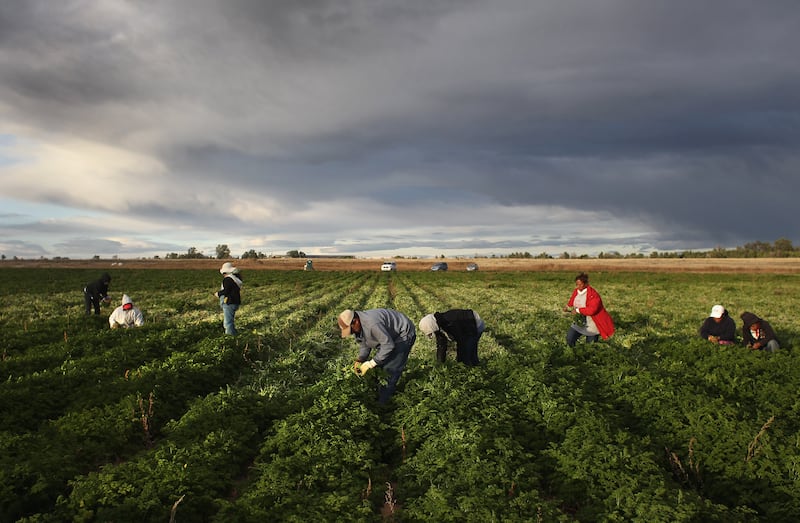Border czar Tom Homan has doubled down on ICE raids taking place on farms, telling the agriculture sector there’s “a right way and wrong way” to hire staff.
The Trump administration last week paused deporting undocumented farm workers, in part after Agriculture Secretary Brooke Rollins personally lobbied the president about the potential impact on farmers who often rely heavily on undocumented workers.

But in a sign of the ongoing confusion surrounding the policy, the administration resumed the raids a few days later after reported pushback from his top immigration aide Stephen Miller, Homeland Security Secretary Kristi Noem, and Homan himself, who enforces ICE’s operations.
Asked what he would say to farmers who remained concerned that the crackdown could affect their industries and the U.S. economy more broadly, Homan told reporters at the White House: “Well, first of all, there’s right way and wrong way to hire workers. There are legal programs that bring farm workers in.”
“Second of all, I’ve been saying for years, Congress needs to address this,” he added. “Just because Congress failed, it just doesn’t mean we ignore it. It’s illegal to knowingly hire an illegal alien.”
Trump came to office promising to embark on the biggest deportation strategy in U.S history. But behind the scenes, his economic advisers have warned him that this will prove challenging for industries such as agriculture, construction and hospitality, where employees often rely heavily on undocumented workers.
Republican senators such as Pennsylvania’s Glenn Thompson and Florida’s Carlos Gimenez have also raised concerns about the prospect of businesses shuttering or supply chains being severely disrupted.
In central California, for instance, some farm workers are skipping shifts or staying off the job entirely for fear of being arrested by ICE agents and deported from the country.
In New Mexico, one ICE raid left a dairy with just 20 workers, down from 55.
“You can’t turn off cows,” Beverly Idsinga, the executive director of the Dairy Producers of New Mexico, told AP. “They need to be milked twice a day, fed twice a day.”
But Homan said ICE was merely enforcing the law, and priority would be given to arresting people with criminal backgrounds such as trafficking, tax evasion or forced labor.
Asked about the guidance sent out in an email last week by a senior ICE official, Tatum King, which led to the pause on farms, Homan said: “It’s a matter of messaging.“
“The message is clear enough,” he insisted. “That we’re gonna continue doing worksite enforcement operations even in farms and hotels but based on a prioritized basis: Criminals come first.”

